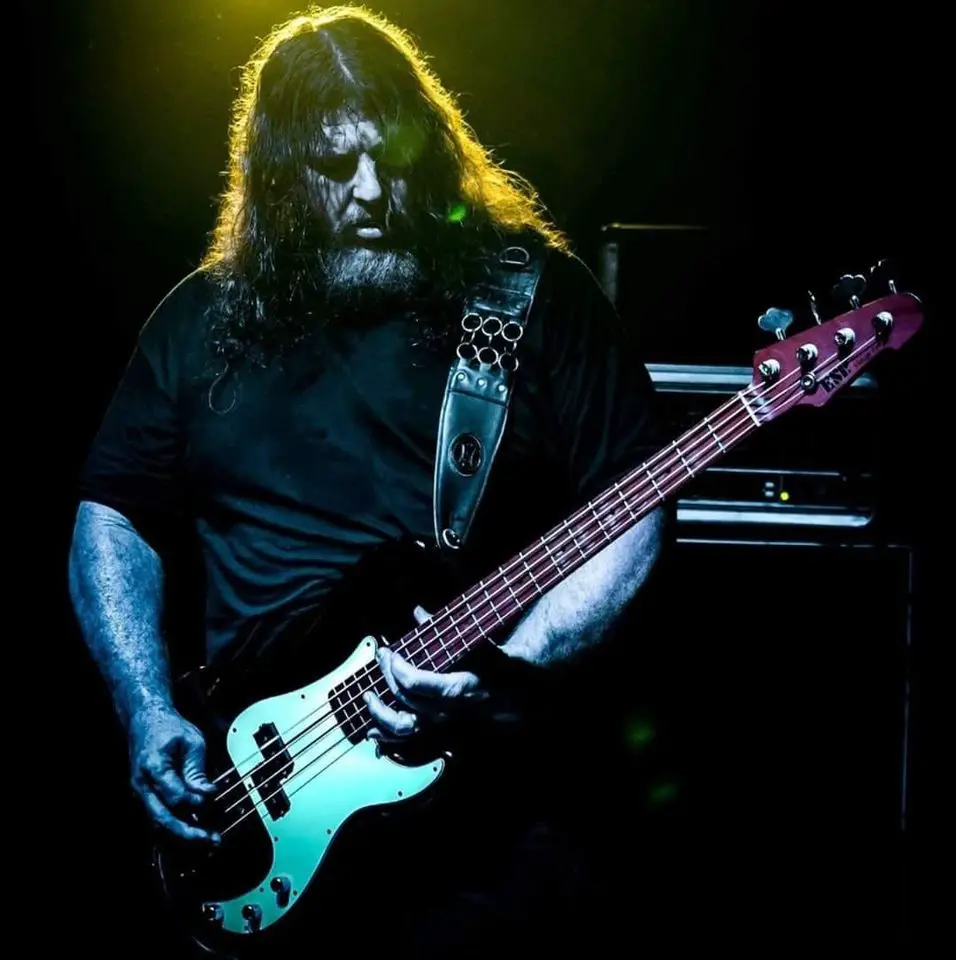
Terry Butler’s style of playing is groovy and buzzing, harmonic and aggressive – just like the true death-metallic bassist should sound like. As a result, Butler’s bass-parts became one of the components that shaped death-metallic revolt – firstly in the late 80’s Terry spent being a member of Death. Then within Six Feet Under. It’s transformed a little bit. Of course. Up to the point where he’s now – a member of Obituary and still a musician true to his principles.
MetalAddicts spoke with Terry Butler about harmonic changes in his style and the upcoming Obituary album, about writing “Spiritual Healing” and groovy transformations of Six Feet Under, about death-metal of these days and songwriting.
After you joined Death you also became a part of rising death-metal scene in Florida of that time. How it felt, actually and what, according to your opinion affected these musical tendencies rising in Florida at that point ?
We were kind of a “ground zero” for death-metal, so to speak. I don’t know exactly what created it…We had a couple of local bands we’ve already liked – Nasty Savage and Savatage. We were 14-15 years old kids. And we just wanted to be like them! We wanted to be on stage! Playing shows, being heavy. Around that time, Slayer came out. You always have a tendency to be heavier, to be faster. All us at the shows, which would be – people from Morbid Angel, people from Massacre, Death, Obituary, all were getting influenced and wanted to play heavy music. So the seed was kind of planted that way, as far as Center-Floridian death-metal thing. Starting from that the progression is…More bands started popping up, because more bands started putting on demos. When kids heard that demos, they wanted to be heavy too! That’s the best way I can describe what was doing on here, at that time.
In the 90’s with Six Feet Under you were among metal band who came from the underground scene and slightly getting the mass-recognition. What it was like, when after a while you started playing on big festivals and seeing not just the people there and the reaction but also younger bands and how the genre has evolved ?
It was amazing! In the 80’s there were some festivals in Europe but nothing like today. So when we first started playing some festivals – around 95-96…It was amazing to came up and play in front of 20 000 people or 30 000 of people. Maybe Six Feet Under wasn’t the heaviest, the most extreme music in the world at that time but still death-metal. Pretty dark and heavy. See that response was amazing. If that influenced younger kids who was bands growing up these days – that’s cool as well! It was nice to be part of it.
Your style always been very much rough and percussive – within such songs as “Ten Thousand Ways To Die”, “Minds Of The World” of Massacre’s “Defeat Remains”. What helped you developing your style of play ?
Each band I’ve been in kind of has it’s own style and sound. Which was all-pulled-from-out-influences ranging from Slayer and Venom to Hellhammer and Savatage. All that stuff. But death-metal in general, at least to me, always been about being heavy, round and fast. Which also may be referred to the lyrics. Which was darker type-of-lyrics. ‘Cause it’s death-metal after all. It’s not like Christian metal! So there’s always been dark tones of it. Death-metal is like a bastard child of heavy-metal. Heavy-metal itself is found upon in the most part, by the musical world. Death-metal is found upon even more. Because it’s more extreme. That’s what appealed to us back then! We wanted to be different, round and kind of nasty.
It seems to be that after you founded Six Feet Under it took a while for you to find a certain direction to move to. That’s why such later works of yours like “True Carnage” are different from “Haunted” for instance. How much your process to work and interaction within the band changed since you’ve started ?
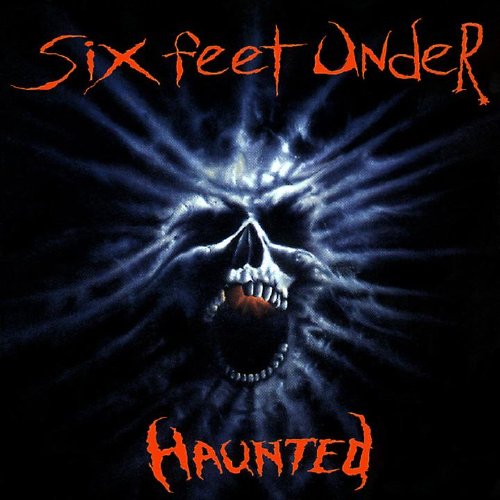
The first could of records – “Haunted” and “Warpath” that to me is truly what Six Feet Under was about, as a band musically. Which was a certain dark, groovy, kind of heavy death-metal. And once Allen West left… “Maximum Violence” is a great record, I think. It’s a crossover record that kind of goes different direction. A first couple of records have their own style. To me, Six Feet Under got lost a little bit. Towards the end I was there, we were trying to get back to our roots and reconnect with that. It seems that starting with “True Carnage”, every album was a bit different. But there’s still some good stuff on these albums, and it’s still heavy! But we lost our direction a little bit, along the way. I joined Obituary in 2010 and full-time in 2011 – I stepped from Six Feet Under to Obituary which is a nice transition!
With “Maximum Violence” you started approaching your playing in a different way, really. More groovy and even jazzy to a certain degree. What lead to you doing it during that era of your creativity ?
When I joined Six Feet Under, it was different kind of style. One guitar player and a lot more open. So I started using a pick at that point. I was using my fingers in Massacre and Death. I just figured [that] pick would be a bit better style for Six Feet. My bass-style improved a lot. I get a dirtier sound. And I think I became a better bass-player. Even though the music was simpler.
You’ve been a fan of hard rock and heavy metal bands like Venom or Celtic Frost. And like with most of musicians – there’s a certain point when you’re playing cover-songs and then – write your own material. What was this transition for you like ?
Unfortunately, I never got to build up my chops in a cover band. I bough the bass when I was like 17…And my best friend – Bill Andrews, he started Massacre. I stayed with them every day for a practice. So, I knew all the material, I knew all songs. Their bass-player quit. And he [Bill] called me saying: “Hey! Come over to practicing and bring in your bass!” – I was kind of thrown into the fire, so to speak. I’ve never got to do a cover-thing. Which, I wish I would have. Because, it would have made me even more ready to what was going on. The first time I was writing music was in Massacre. Actually, in Death I helped writing four songs on “Spiritual Healing”.
“Spiritual Healing” became your first studio experience. What was the work in this record like and how important is this experience for your becoming of composer and songwriter ?
It was great! With “Leprosy” – I was there! I joined Death while “Scream Bloody Gore” was released. Chuck [Schuldiner] didn’t have a band. So three of us from Massacre got to Death. We toured for “Scream Bloody Gore”. We did “Leprosy” album and tour for that. And “Spiritual Healing” was amazing! Because, it was me and Chuck for the most part. And then James [Murphy] came together. We all wrote “Spiritual Healing” together. It was a great feeling. Of four of us together. And the band was writing riffs, getting the record ready. It was just a good time. Studio was great! It was also a great experience in studio as well. With Scott Burns.
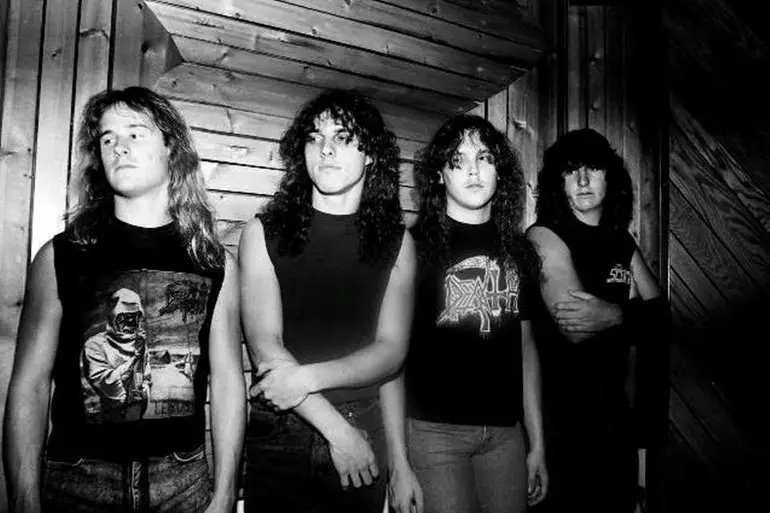
How it was to get back to Massacre and continued your career releasing records ?
It all came about because we just toured in Europe with Kreator. Chuck didn’t go on that tour. He wanted to sit home. But at the end of this tour Bill Andrews and myself knew that our time in Death is gone. We knew that Rick and Kim are doing Massacre again. Which was funny. Because it was Bill’s band. But we contacted them while we were in Europe. I said: “Hey! We’re going home on a few days!” – it was right on Christmas time. I told them what happened and said: “Let’s get Massacre back! You guys, me and Bill! Let’s do the domo of songs and put the record out!” – because, we knew these songs. They were already written in 86. So we signed to Earache. The whole material was from 86. And our plans were to put that out and probably get a new record. “From Beyond” sold so well and got so popular and was a big hit. We toured for that record TWICE in Europe. Then we put out an EP – “Inhuman Condition” which was to be like a gap in between the albums. We started writing some stuff. But it all fell through Rick and Kim. I guess they had some ideas of what to do without us. So basically. Bill became uninterest. And he went on to Japan. Shortly after that I joined Six Feet Under.
When you’re working on riffs, what do you usually rely on – is it drum patterns or, as a musician you always try to be maximally abstract ?
A lot of times it can be either. Sometimes, I have a certain thing in my head and I’m trying to put a rhythm around it. And sometimes you’re just playing the bass. Come up with some cool and put the drums around that. So it’s kind of “back and forth”. I sit down and create the whole song, drum-pattern and write the music around it. It can be a rhythm first I have in my head. Sometimes I have a drum-beat it my head and I try to rhythm around that. It kind of varies literally.
Do you have a strong view on the things you’re doing as musician – how do you see your main goal in terms of writing or co-writing and performing live as well ?
In a studio it’s very nerve-wrecking. Because, it’s precise and you’re under the microscope. Basically, there are people around watching you and you can get all nervous (laughs). It’s kind of sterile thing. I like playing live better, because you’re feeding off the crowd. When I get to a live-concert – I don’t expect to sound like a record. It can be tied and be precise with different ups and downs and it flows differently here and there. So I prefer live-harmony. The studio is cool because you put something that’s gonna be there forever. Recording’s gonna be there for the duration of your life and lives after that. That’s why it’s important to get it right, precise.
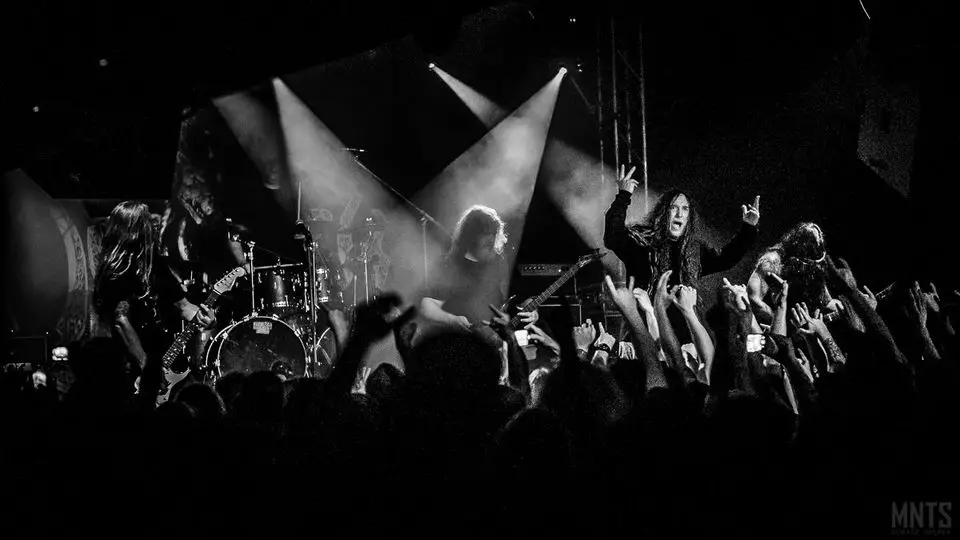
As far as I know right now, you’re working on the newest record of Obituary. Could you please tell me a little bit about it ?
It’s on the early stages because with COVID-19, we haven’t been able to fully get to the studio as a full-band. So the process has been going a little slower. But there’s a bunch of riffs that has been practiced and kicked around. And there’s definitely a foundation there, before the record. We’re gonna do it. It’s gonna come out in 2021. Hopefully, in the early part of the year. Because, since March 15, we were in the middle of the tour when the whole industry shut down. Everything’ stopped! There’re no more shows, there’s no more place, no more movies – nothing! Everything’s shut down. So we came home and for the first few months no one really left their house basically! The process has been going a little slower than normal because of that. But there’s a record coming out the new year, and we just started the process of writing songs. And it’s gonna be similar to last couple of records. Life changes it’s formula when it works!
Your recent self-titled record became one of the most powerful records of Obituary. It’s extreme. It’s fast and powerful. But there are also the elements of hard-rock present – in songs like “A Lesson In Vengeance”. As well as different interesting harmonic and compositional changes. What was the writing process like and how did you approach these songs ?
We were on tour, doing soundchecks. We came out with riffs all the time, during soundchecks. Someone pull on the riff and we’re: “Hey, that’s cool!” – you kind of remember that. You record it right on the spot. And at the end of tour we got together, kicked around all the riffs, picked what we thought would work well. Obituary has a certain formula. Donald, John and Trevor. Trevor is a riff-master. They all kind of know each-others tendencies and things. Ken, I’d say, Ken’s addition to the band has been amazing! He’s such a cool dude! And shredder on guitar. But he’s from an old-school like us. He’s injected so much life into the band, as far as guitar harmonies and stuff. He wrote two songs on the last record.
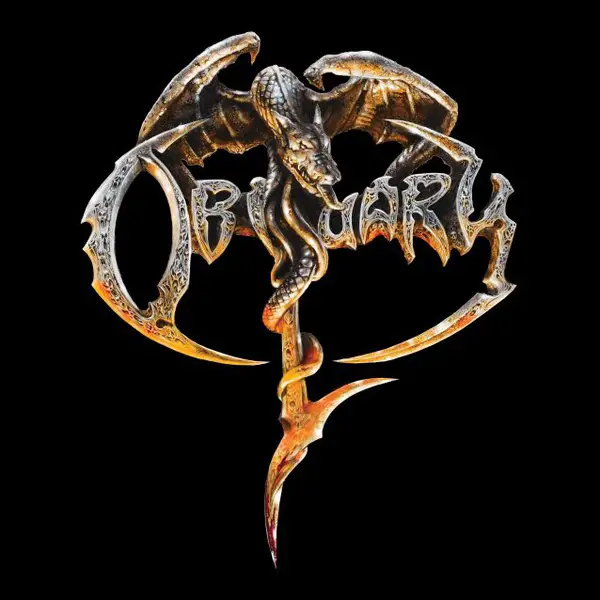
Our approach has always been the same. You have rhythms…We don’t get to the studio and say: “Ok, we have a week!”. But then, you write songs, you record them. There must be a couple of good songs that way. But the rest might be crap. So it takes a little bit of time to come up with some cool riffs. Like I said – we recorded the recent one [album] for the last six mounts of tour, then we got home, find those things, put them together and kind of structure songs.
How long it actually takes for you developing the song from the initial idea ?
I would say…For us, once we started….[After]three months we can have 12 songs. Written, structured, rehearsed. John likes to get songs complete – he’d stay in the room when we were practicing the songs. And get some ideas in terms of vocals and stuff. We really have no idea about what’s going on, what he has vocalized until we record them. So the vocals is kind of a last thing to get put down. I’d say once we start kicking ideas around until the end, three-four months and it’s done, we record it!
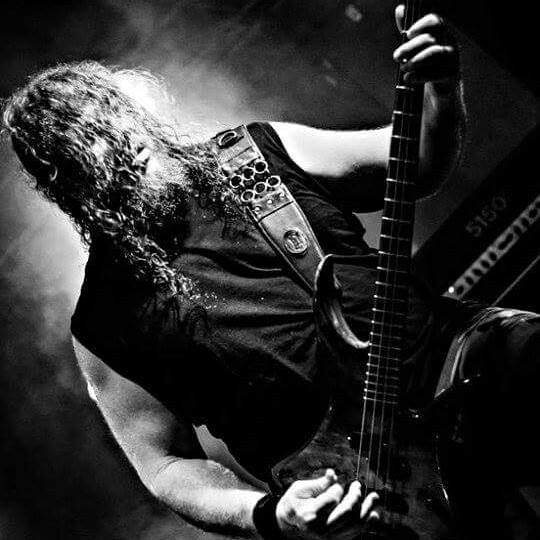
You joined the band in 2010. Which is the different thing in comparison Six Feet Under you co-founded. What it was like for you to get in the band that already had a certain type of chemistry ?
Well, it was a good fit. Because, I’ve known the guys in Obituary since they first started. We lived in the same town. I knew them. I saw them all throughout the years. We played shows, we talked…It was a familiar thing to do getting in the band, because they all such cool guys! And we get along…I could not imagine a better band situation when I got to Obituary. Everyone’s equal, everyone has a voice. And we get along. So that makes it even much better. It was a good smooth transition.
You’ve been playing death-metal for quite a while. You used to see how the genre developed and evolved over the years. After playing all the big festivals, what do you think about the genre itself and it’s progression ?
I think, death-metal in general is strong. When we started out – the first tour I did with Massacre in ‘87, death-metal was still in its infancy…Getting accepted, getting to the people to listen to. I thought: “This is cool!”, there was a big underground movement and it felt good because it felt like you’re a part of a special group. You had rock and then metal. But under niece of it, there was a shadow which was another kind of metal – death-metal. It was cool to be a part of it! And the progression. I think, it’s normal for any style of music – brainchild with some different genres at certain point. A lot from early on, like surf-rock and psychedelic-rock and progressive-rock and hard-rock. The same from metal! Emo, screamo, death-metal, grindcore…It’s all the same. I don’t know what else can be done ( laughs ). You start to get to a territory where all the styles are done. I think, death-metal in still strong. Now it’s kind of got back a little bit. Bands that are becoming pretty popular all style of metal. Gatecreeper and stuff like that. They’re bringing that flag back. Trash is making comeback so…I would say: if it’s good music – it’s good music. It stands apart a time.